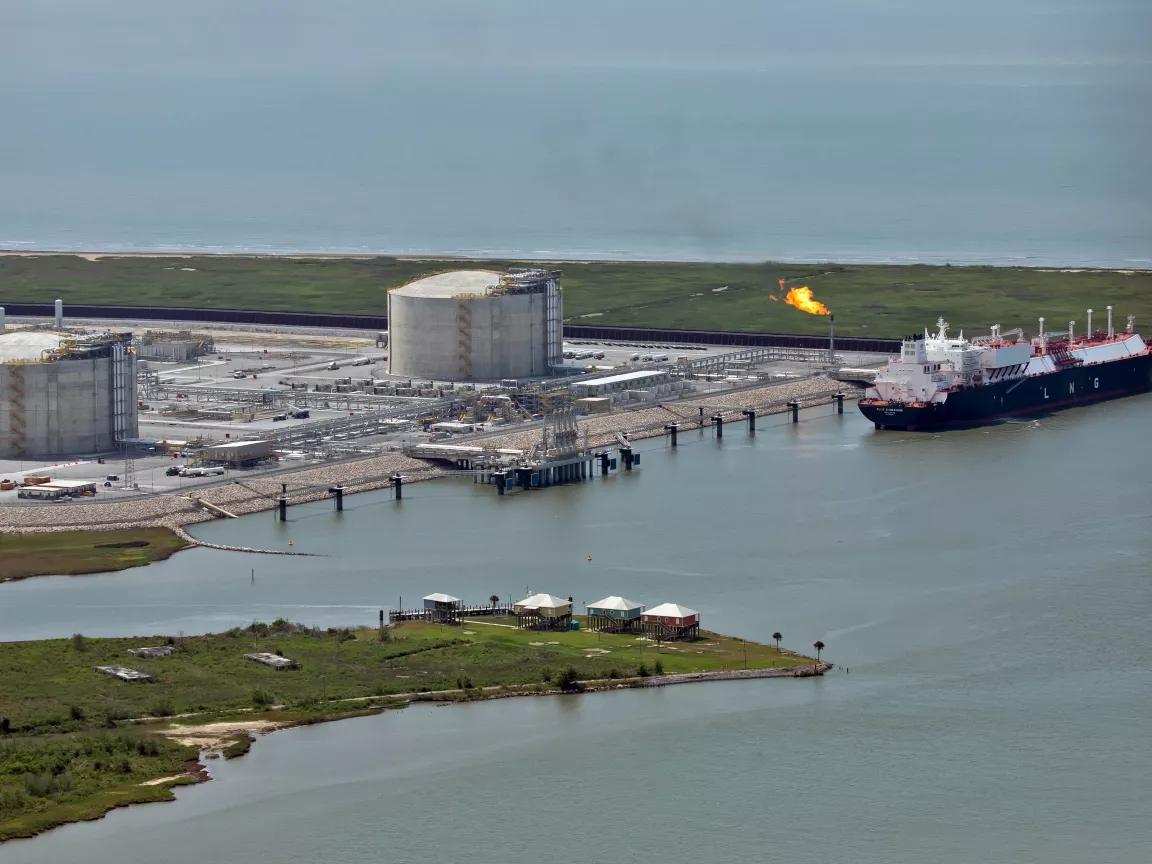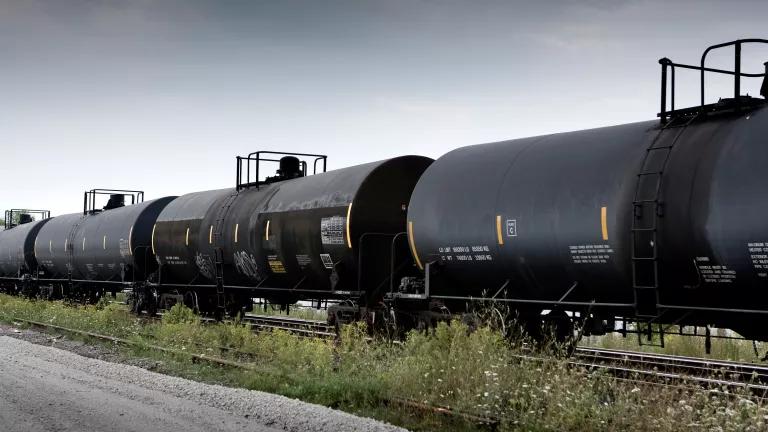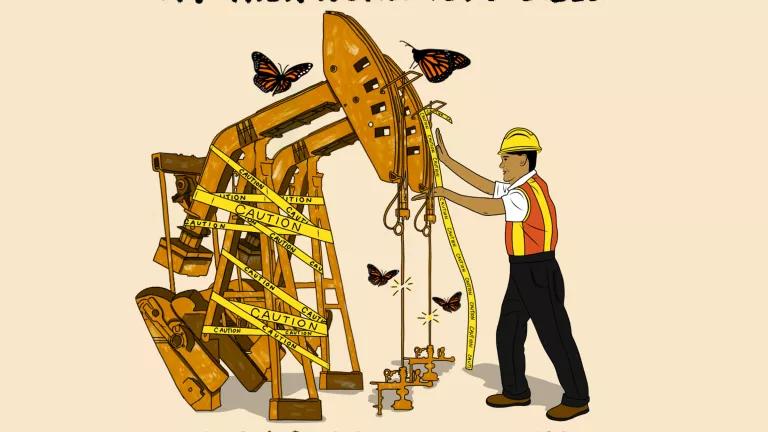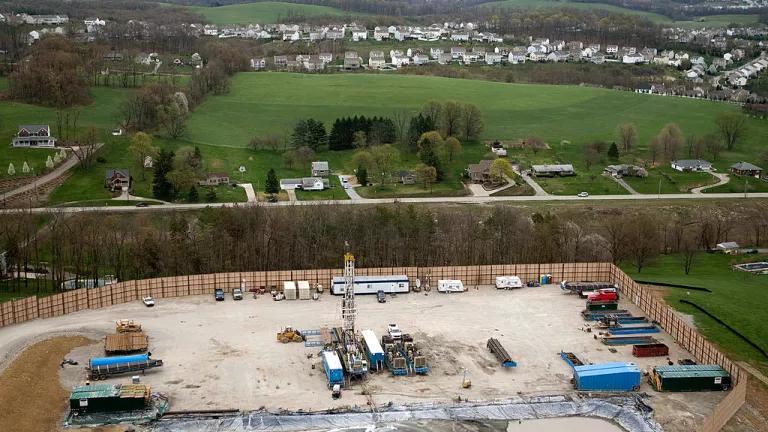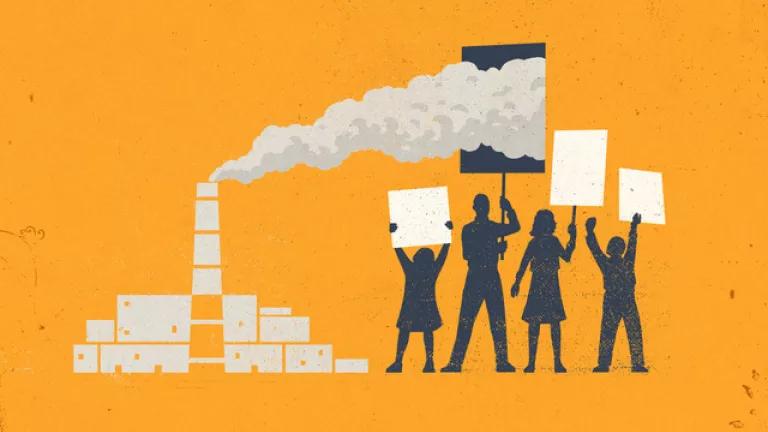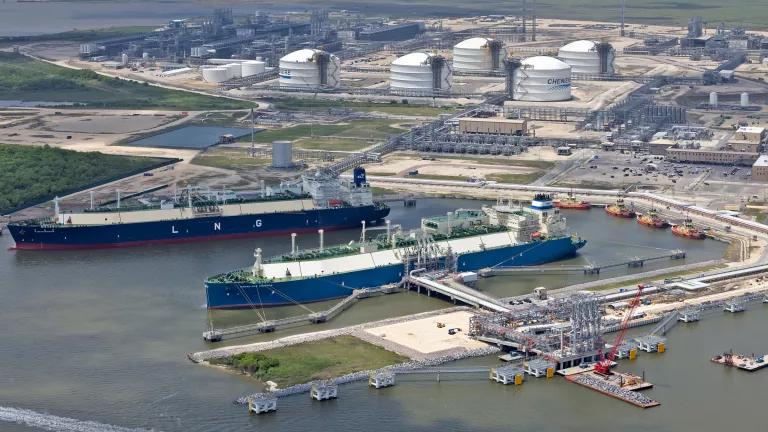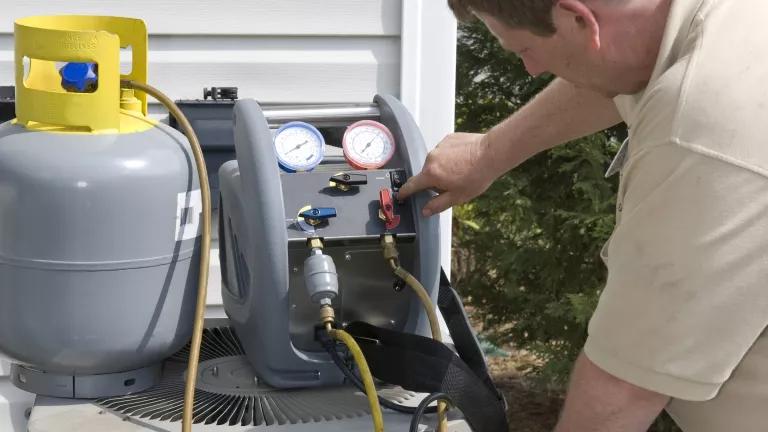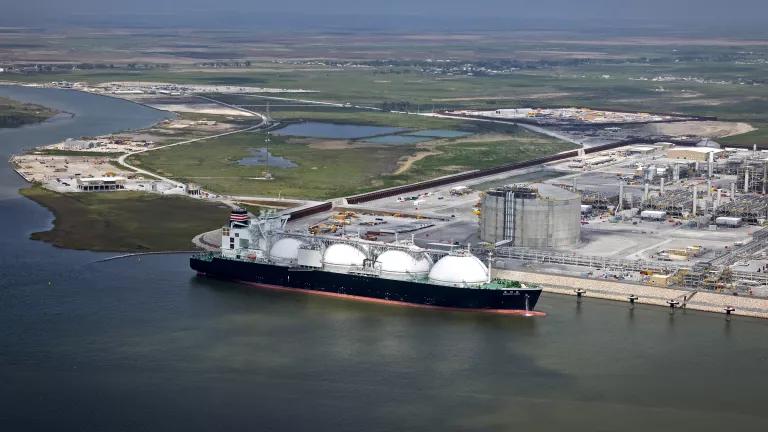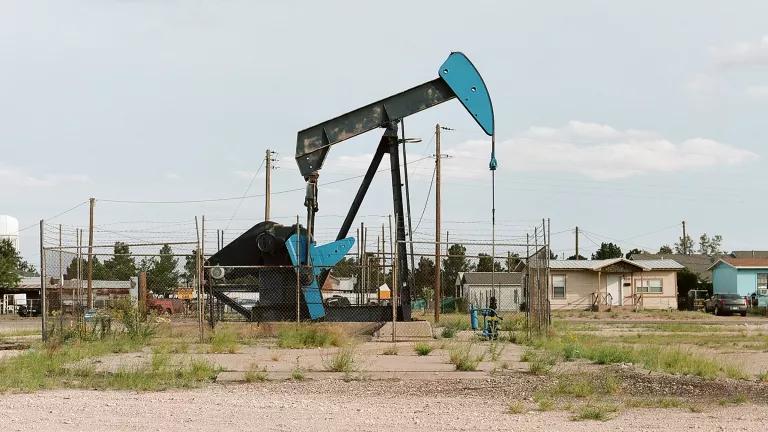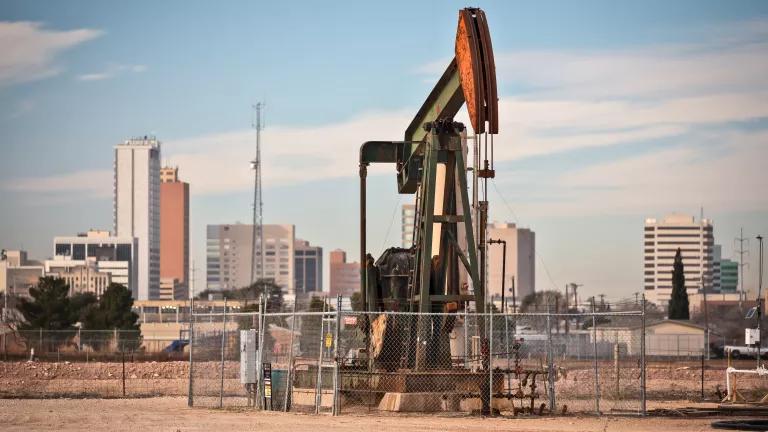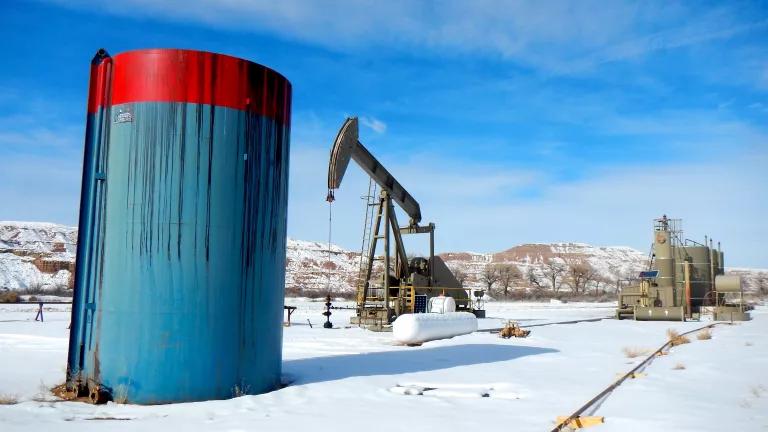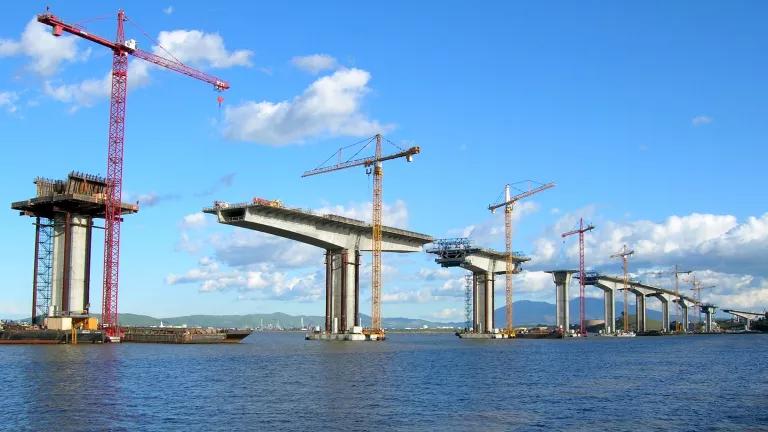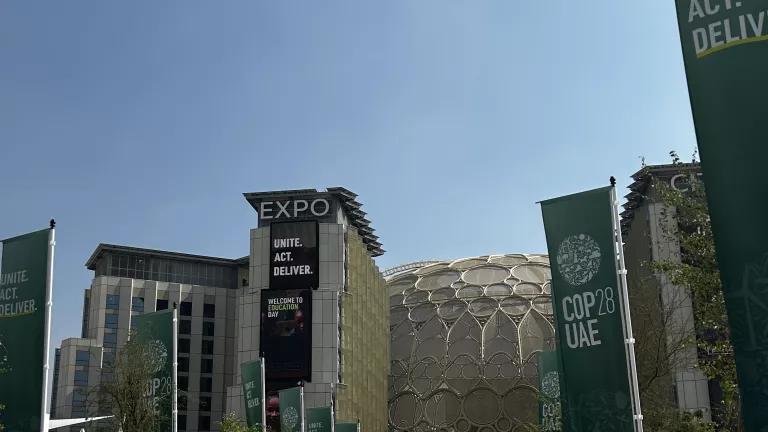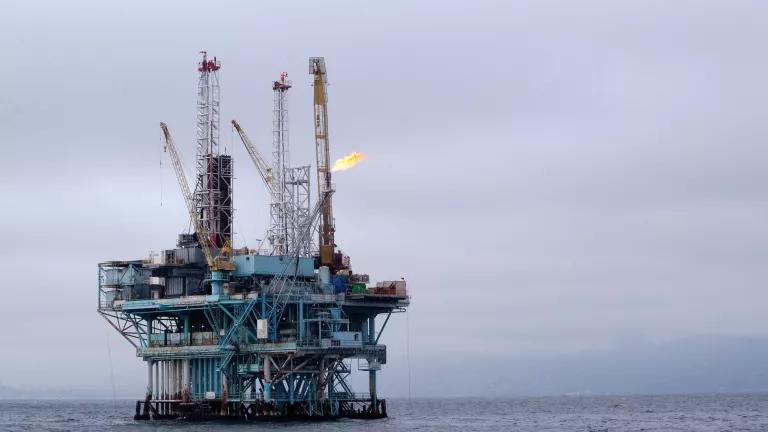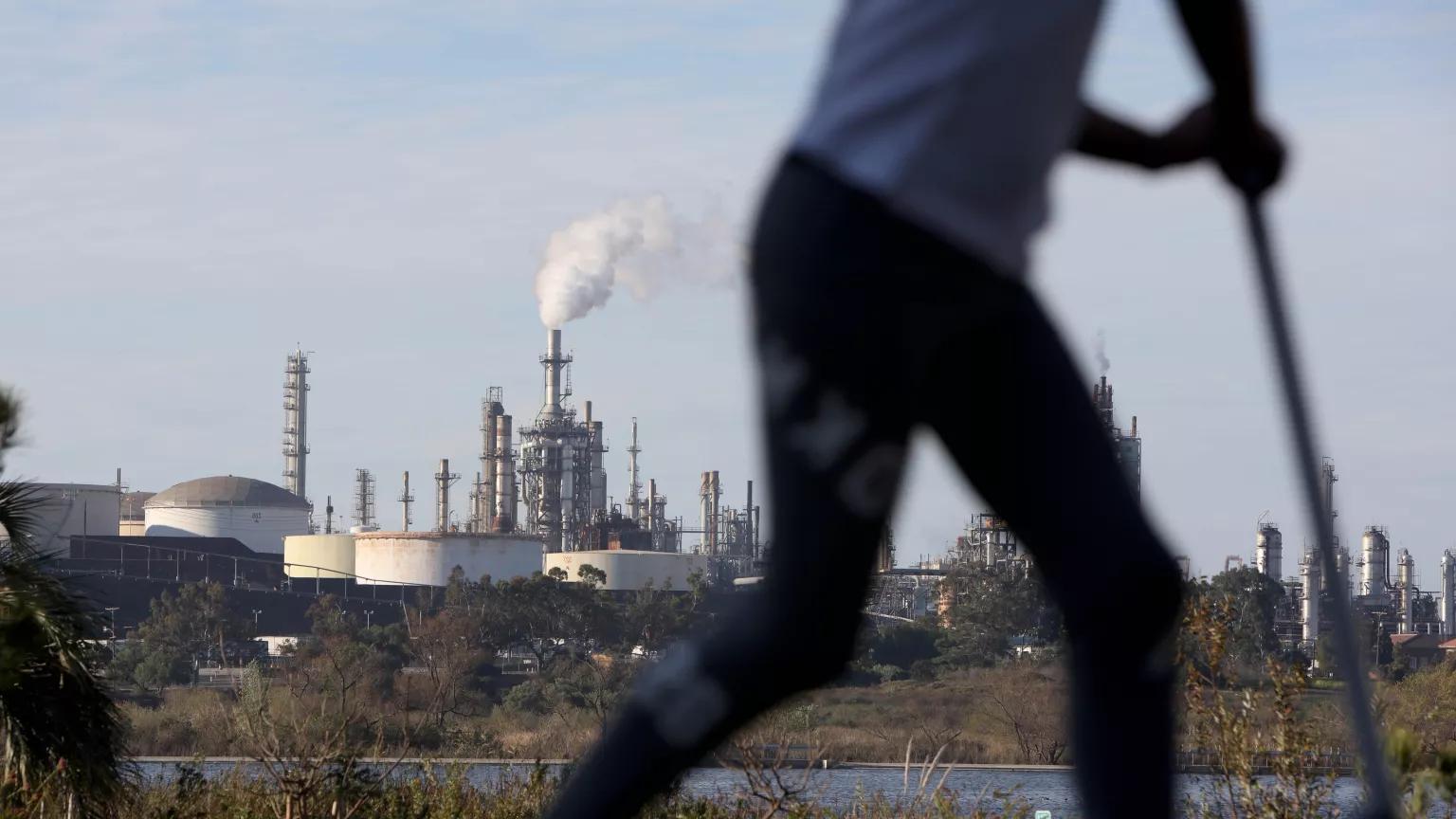
Ann Johansson for NRDC
Fossil Fuels
Overview
Not only is the continued burning of fossil fuels an existential threat to our planet and people, but industrial wells, processing plants, shipping terminals, and toxic by-products also represent a devastating health burden and safety risk for so many marginalized communities that are forced to coexist with this highly polluting infrastructure. To successfully fight against all these threats, we must directly challenge the dirty energy companies and their allies in power perpetuating a dangerous status quo. While the task is daunting, it’s a fight that tenacious activists, community leaders, environmental justice groups, and their allies have proven is more than possible—it’s winnable.
Solutions
Stop unneeded pipelines
We advance reforms at the Federal Energy Regulatory Commission—which oversees the interstate transmission of gas—that will limit the expansion of unnecessary pipelines, gas, and LNG export facilities. We also seek to support Indigenous, marginalized, and BIPOC communities in their fights against the expansion of new fossil infrastructure across state and national borders.
Keep dirty energy infrastructure out of our communities
Communities should not have to live with oil and gas wells, crude oil–carrying “bomb trains,” and petrochemical processing facilities in their midst. We litigate to ensure U.S. decision makers act in the best interests of those most directly impacted by fossil fuel infrastructure, and to advance statewide regulations that keep oil and gas wells away from the places where people live, work, and study.
Did You Know?
Just 22 train tank cars filled with LNG hold the same amount of energy as the Hiroshima bomb.
Limit methane and other dangerous pollution from fossil fuel production
Given the scientific consensus that methane is the second-biggest factor in climate warming to date, we must accelerate action to stop methane leakage in gas, oil, and coal production. The single-largest industrial source of methane in the United States is flaring from oil and gas operations. We are aiming to stop these deliberate acts. There have been huge advances in detecting methane (with infrared cameras and satellites) and zipping up leaky systems. We must also require industry to clean up abandoned and orphaned wells. By pushing for the right U.S. Environmental Protection Agency (EPA) regulations, we can ensure drastic cuts to emissions from both new and existing operations.
Eliminate handouts to the fossil fuel industry
To fully invest in a clean future, NRDC is helping to drive forward legislation that will eliminate antiquated and costly subsidies to the fossil fuel industry. Our targets include a raft of tax giveaways to the oil and gas industry that fuel harmful pollution in our communities, loopholes that allow companies that drill overseas to escape taxes, and other subsidies that essentially have American taxpayers paying oil companies to drill. We simultaneously advocate for establishing and strengthening important tax provisions to advance clean energy, and for policies that force fossil fuel companies to pay for the damage they cause.
Support countries in their efforts to curb climate pollution
By significantly increasing U.S. contributions to international climate finance, we’ll spur greater action to curb fossil fuels and persuade other countries to ante up more money for the global climate fight. As part of our commitment to helping vulnerable countries become more climate-resilient, we seek to develop and support the rollout of climate finance guidelines for large U.S. banks and asset managers to increase their commitments to entities such as the Net Zero Banking Alliance, an alliance formed by parties of the United Nations Environment Programme Finance Initiative.
Ensure a just transition
We call on elected officials to scale up support for a just transition away from fossil fuels—both in the United States and abroad—by providing support for workers and communities affected by the transition away from coal, oil, and gas; by decommissioning and repurposing sites; and by replacing fossil fuels with clean energy. This is particularly vital support for workers of fossil fuel–dependent states, where some communities may not have the job opportunities or skills needed to allow them to move into the renewable sector or into other industries. We also advocate for local communities to become key stakeholders in shaping these transitions.
“Climate change can oftentimes seem quite abstract, but when a pipeline or other dirty infrastructure is planned for a community’s backyard, it helps give people a better sense of what we’re fighting against.”
Kimberly Ong, senior attorney and co-lead of the Northeast Fossil Free team, People & Communities Program
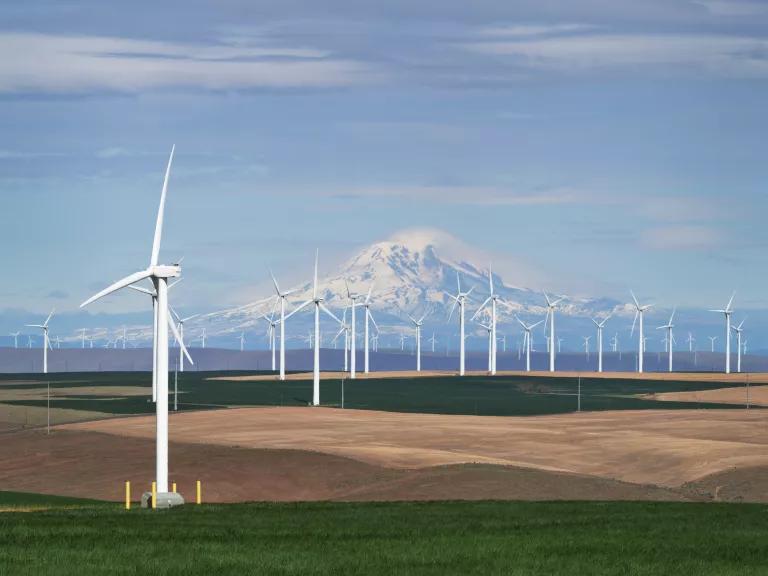
Limiting dirty fossil fuel production and transitioning to clean energy, like wind and solar, are critical in building a livable future.
Getty Images
Progress
- After years of advocacy by NRDC and partners, the U.S. Department of Transportation suspended the rule that allowed the transport of climate-destroying liquefied natural gas by rail across the country—which posed unreasonable risks to communities in their path—without a special permit.
- In 2021, leaders from around the world attended the 26th United Nations Climate Change Conference of the Parties (COP26) in Glasgow and walked away with the strongest consensus yet that fossil fuels need to be phased out of the global economy.
- Since the Paris Agreement was signed in 2015, three-quarters of all new coal plant projects that had been planned or proposed have not gone forward.
- The United States, under President Biden, has pledged to cut carbon pollution and other climate-wrecking greenhouse gases by 50 to 52 percent, compared to 2005 levels, by 2030.
- New standards proposed by the EPA would significantly cut pollution from oil and gas operations—in particular, the leakage of methane. Specifically, they would reduce atmospheric methane by more than 40 million tons between 2023 and 2025—which, per the EPA, is more than the carbon dioxide that was emitted by all U.S. passenger cars and commercial aircraft in 2019.
- An $8.6 million settlement resulting from a lawsuit brought by NRDC, Sierra Club, and the Chicago-based Respiratory Health Association against the owners of a dirty power plant in Peoria, Illinois, is helping to revitalize the former coal town by funding nursing programs, energy efficiency nonprofits, job training centers, and lung-health educational initiatives—many specifically targeting Peoria’s low-income communities and communities of color, which have borne the brunt of the pollution.
More Ways to Make an Impact
Latest News & Resources
Scorching temperatures this summer are further proof that climate action can't wait.
Tell President Biden and Congress to enact game-changing action to confront the climate crisis!
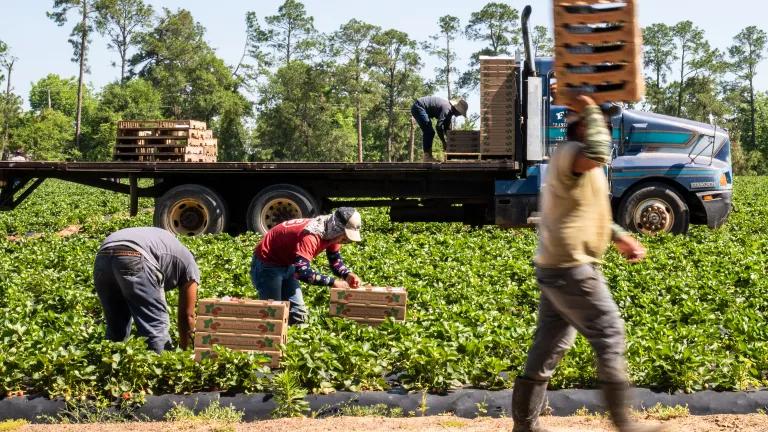
Climate change is heating up the planet...and fast.
View All Issues
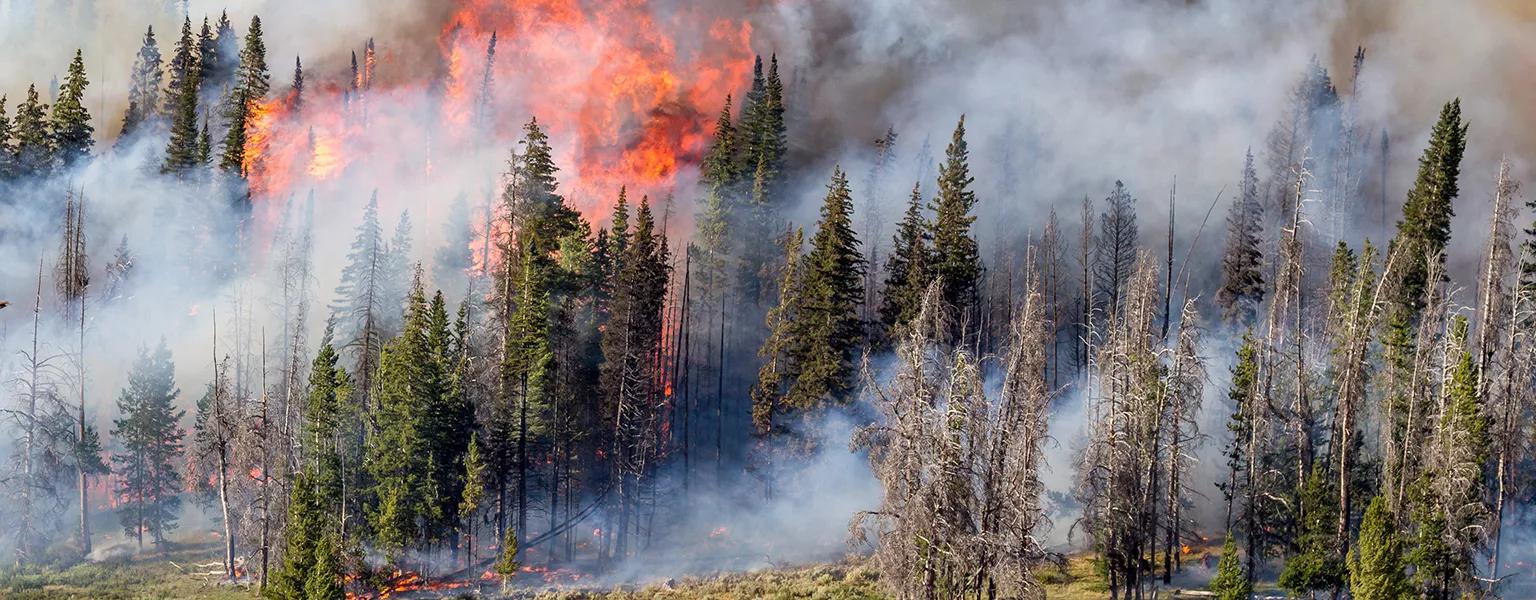
Climate Change
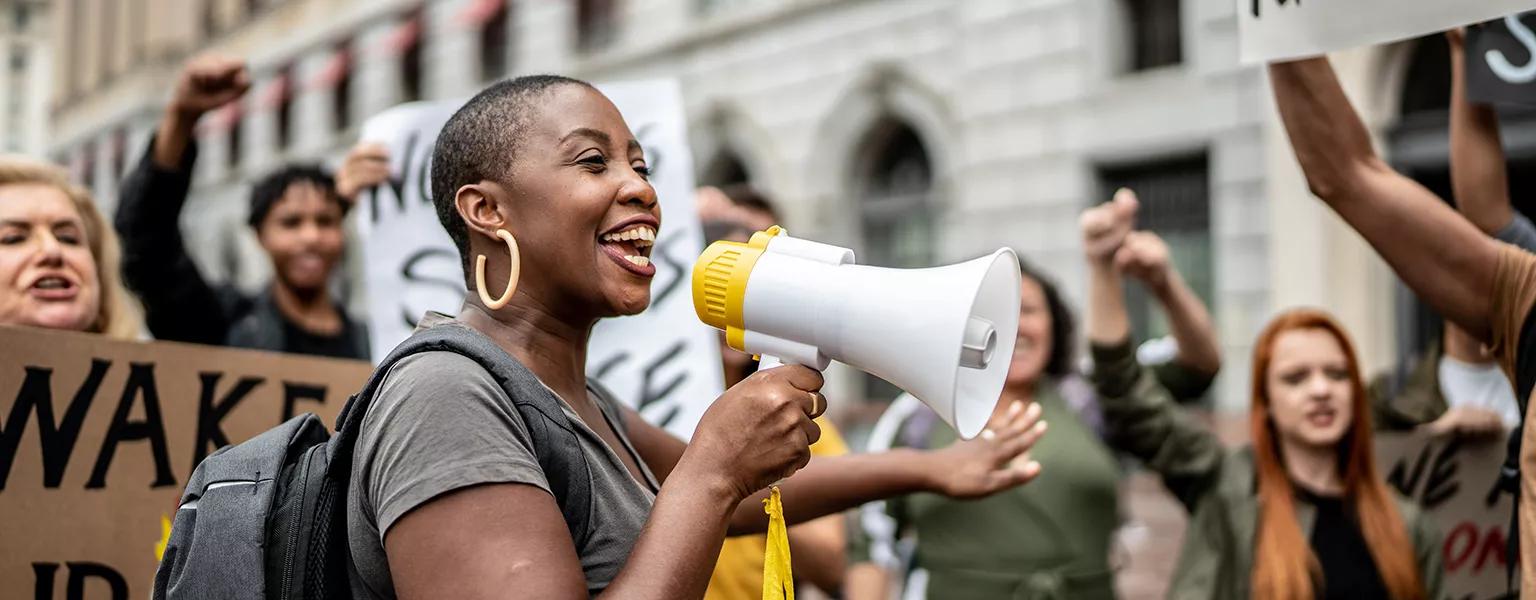
Equity & Justice

Human Health

